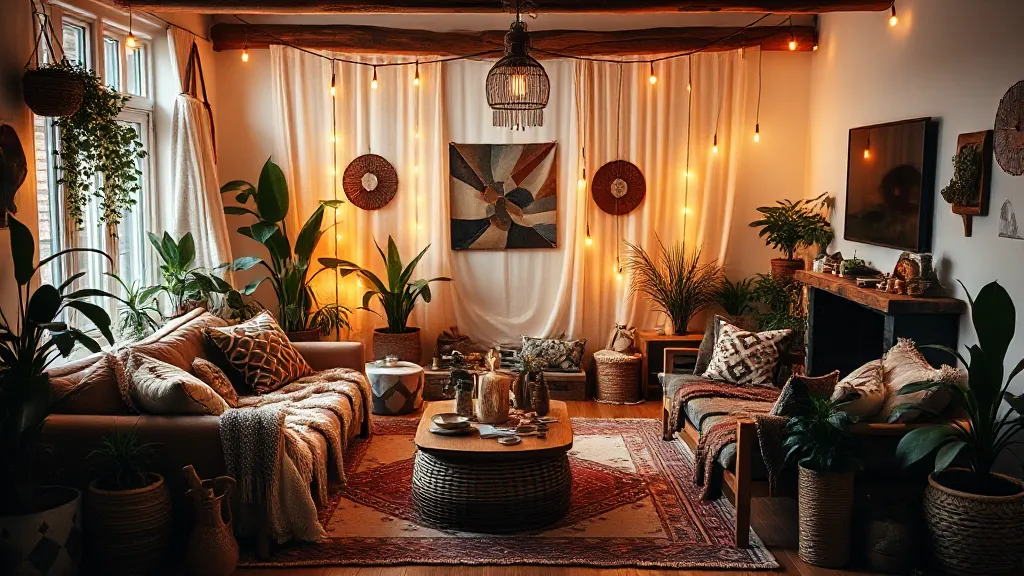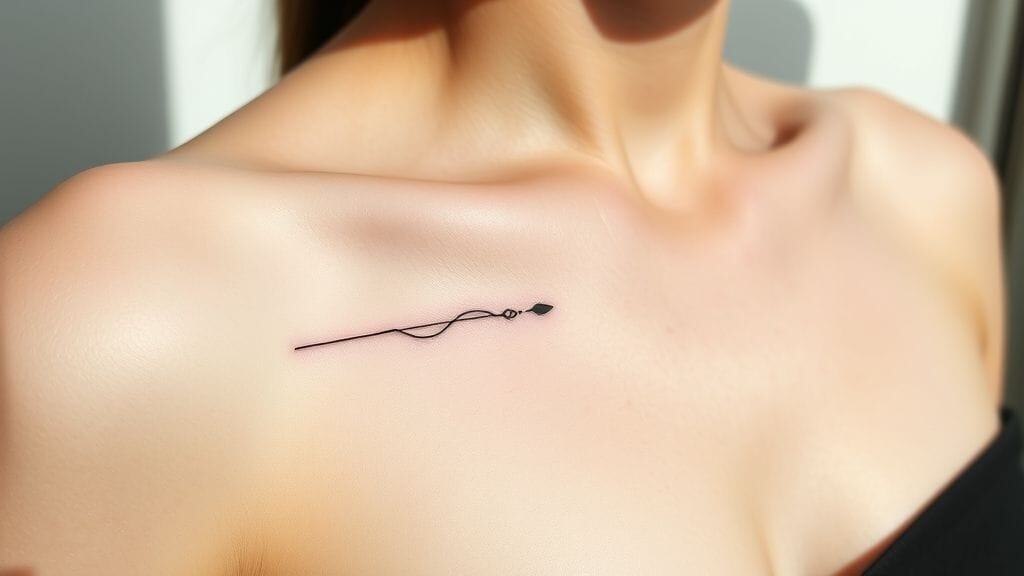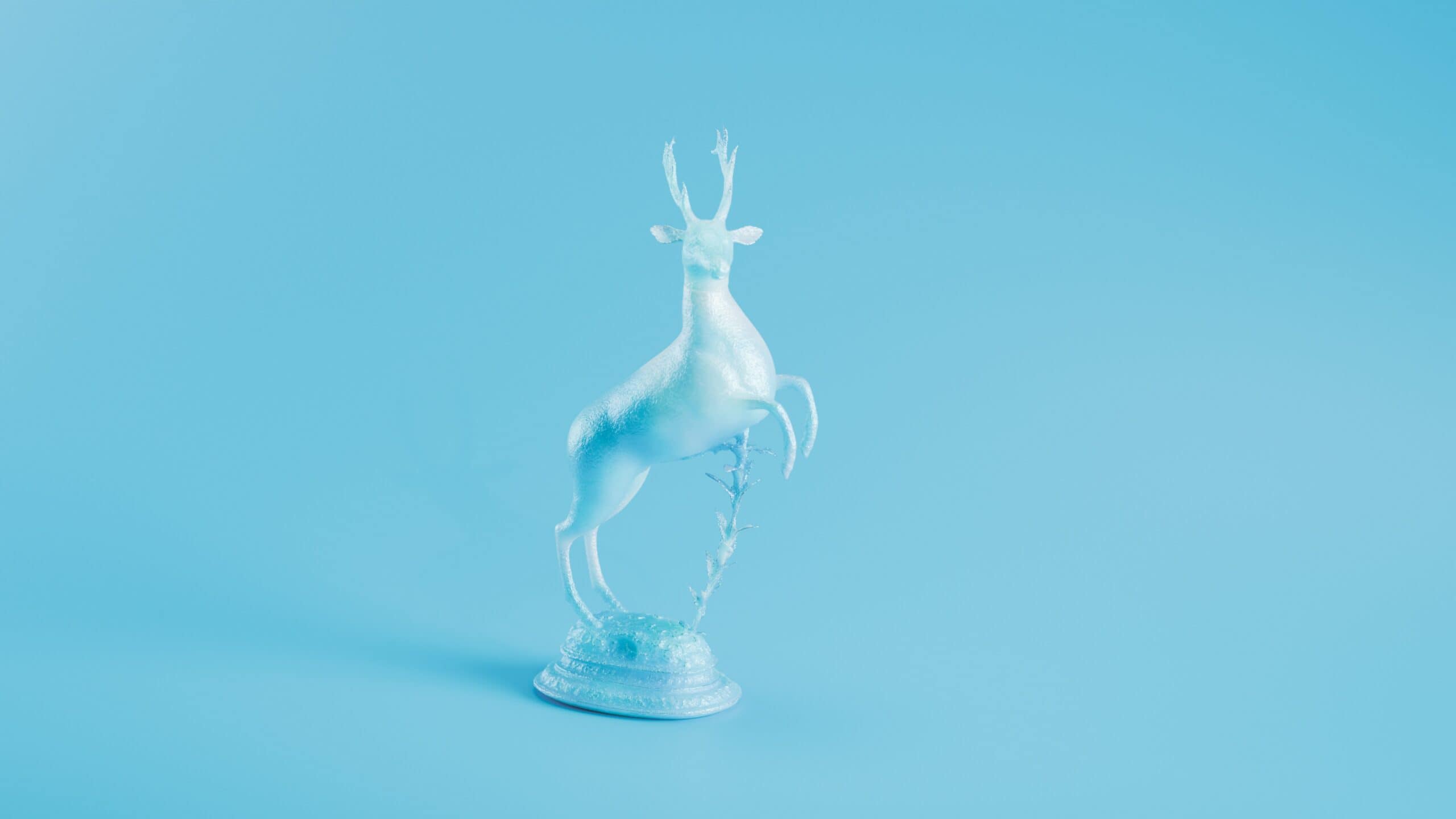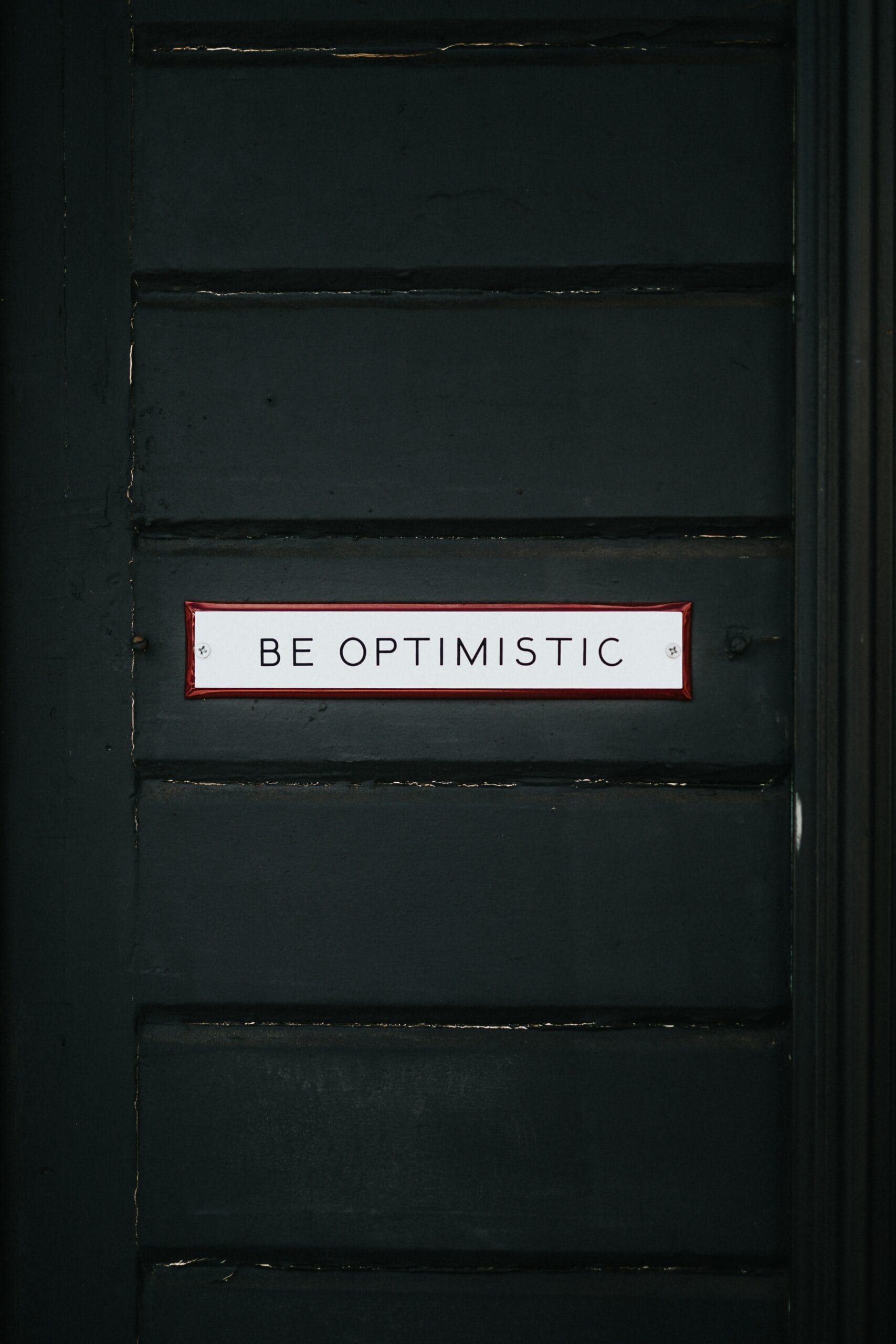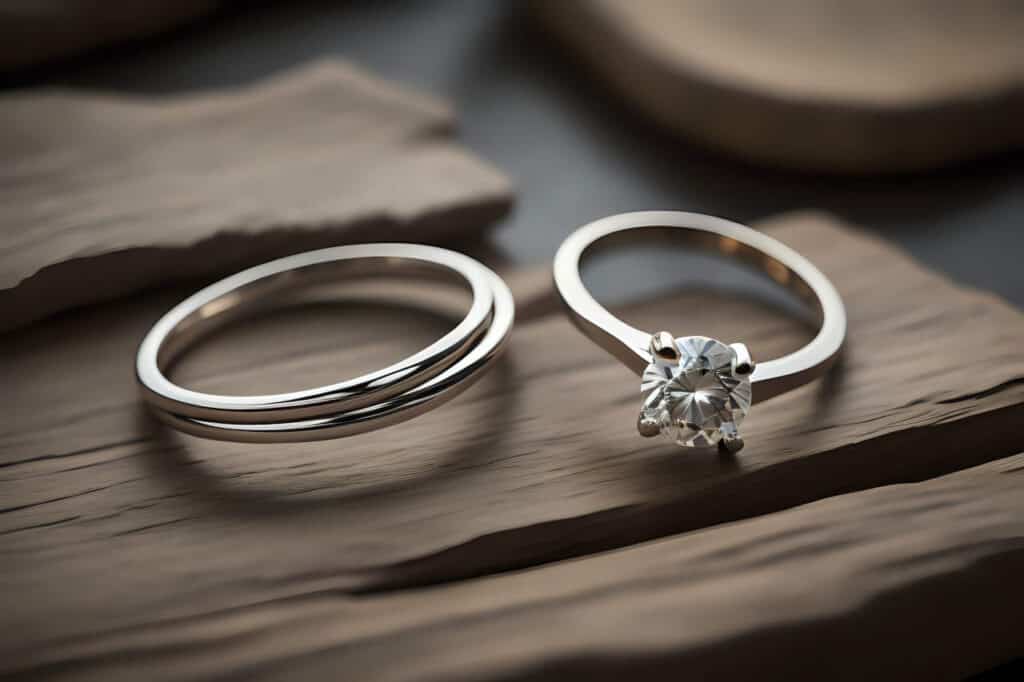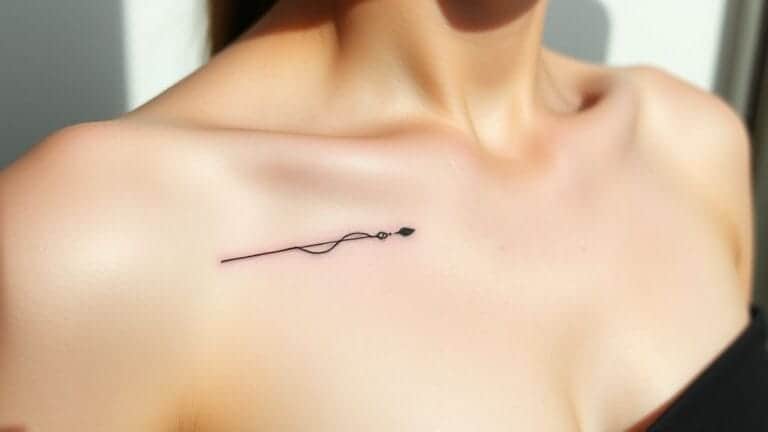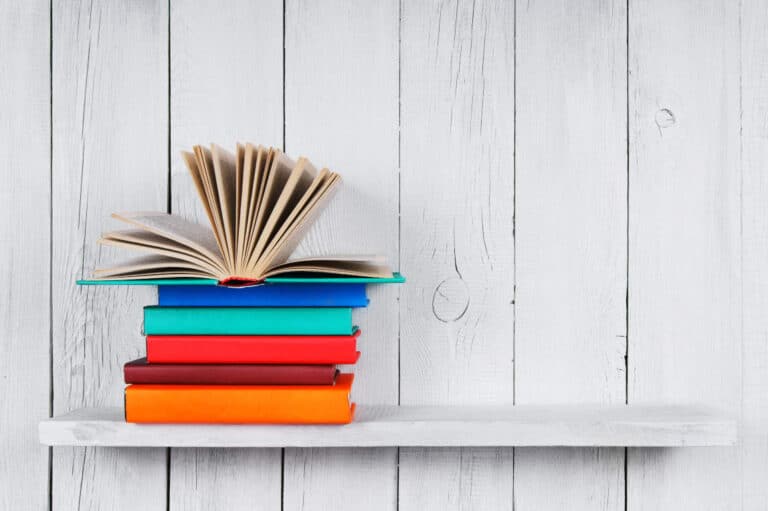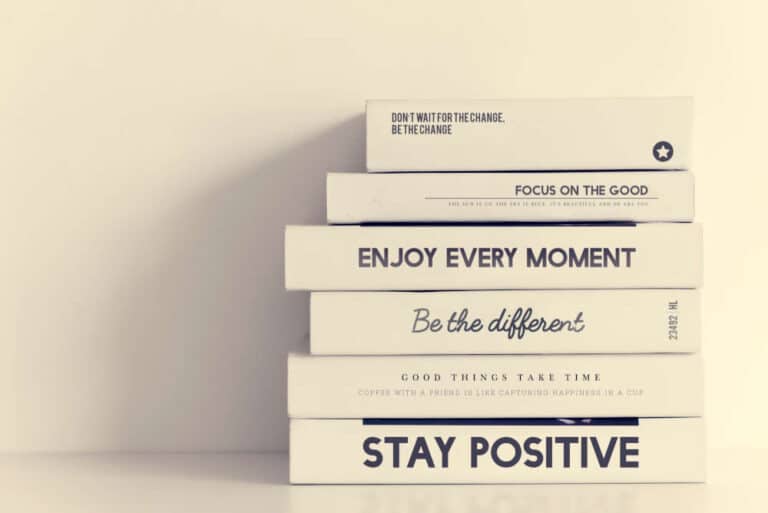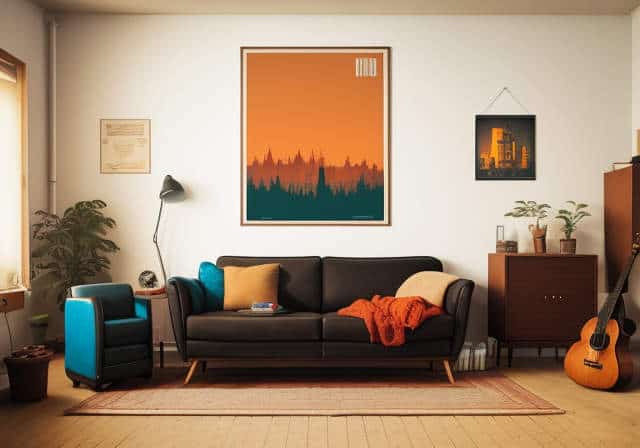Minimalist Lifestyle Resistance – 10 Key Questions You should know
Exploring Minimalist Lifestyle Resistance: Addressing concerns about future needs, costs, judgments, guilt, variety, hobbies, environmental impact & more.

Overcoming Minimalist Lifestyle Resistance: Embrace Simplicity
When people consider becoming a minimalist or adopting a more minimalist lifestyle, they may encounter certain questions and concerns that act as barriers or “idea resistance.” These questions often stem from societal norms, personal habits, and fear of change. Here are the top 10 idea resistance questions posed when people look to try becoming a minimalist:
1. What if I need something in the future that I get rid of now?
A prevalent concern among individuals embarking on a minimalist journey often revolves around the apprehension of parting ways with potentially necessary possessions in the days to come. It is understandable to harbor such worries, for we exist in a society that perpetuates the notion of accumulating and stockpiling “just in case.”
Nevertheless, embracing a minimalist mindset necessitates challenging these deeply ingrained beliefs and placing our trust in our own adaptability and problem-solving capabilities. It is crucial to bear in mind that minimalism does not equate to absolute deprivation or a life void of all belongings.
Instead, it entails mindfully curating our possessions to align them with our values and needs. This entails being aware of what truly brings value to our lives and relinquishing those things that no longer serve a purpose or elicit joy. Concerning items that we might require in the future, it is imperative to evaluate their true usefulness. Ask yourself whether the object is genuinely indispensable or easily replaceable or borrowable if necessary.
Often, we cling to possessions fueled by fear rather than necessity. To proactively address this concern, contemplate establishing a system for assessing potential future needs. Designate a specific space for items that you are uncertain about discarding—a “maybe” box, if you will. If these items remain untouched after six months or a predetermined period, it becomes evident that they are not vital to your day-to-day existence.
Additionally, try exploring alternative solutions before automatically assuming that you require an item. Minimalism encourages the cultivation of creative problem-solving skills and resourcefulness. Can you borrow the item from a friend or family member when the need arises? Are there rental services available for infrequently used items like camping gear or specialized tools?
By adopting this mindset shift towards minimalistic values, you foster resourcefulness within yourself while simultaneously reducing clutter and excessive belongings in your life. Remember, the minimalist lifestyle is not restrictive; instead, it empowers us to deliberately make choices and embark on a path of mindful consumption.
So, when you find yourself fretting over the potential need for something in the future that you have currently discarded, have faith in your capacity to adapt and find suitable alternatives. Embrace the liberation that accompanies living a minimalist lifestyle, secure in the knowledge that you can always acquire that which you genuinely require when the time is right.
2. Isn’t it expensive to replace everything with high-quality and sustainable alternatives?
Isn’t it costly to substitute everything with premium and eco-friendly alternatives? When embarking on a minimalist lifestyle, one might fret about the potential monetary burden of replacing possessions with top-notch and sustainable alternatives. It is indeed accurate that initially investing in these items may necessitate some upfront expenditure, but it is imperative to alter our perspective from a short-term financial cost to the long-term benefits and value they provide.
Firstly, let’s contemplate the notion of superiority over quantity. By opting for well-crafted, enduring products instead of shoddily made ones that swiftly wear out or fracture, we can save money in the long haul. For instance, splurging on a resilient pair of shoes might appear pricier at first glance, but they will endure considerably longer than their cheaper equivalents. This applies to various facets of our lives from furniture and kitchenware to clothing and electronics.
Furthermore, embracing a minimalist philosophy encourages us to be astute consumers. We become more conscious of our purchasing decisions and place emphasis on acquiring only what we genuinely require or truly desire. This transition toward intentional buying aids in steering clear of impulsive purchases or amassing items that serve no purpose in our lives—a tendency that ultimately saves money. Moreover, adopting minimalistic values closely aligns with sustainability.
The rapid-paced consumer culture frequently leads to excessive waste and damage to the environment. By selecting eco-friendly and sustainable options whenever feasible—such as utilizing reusable products or endorsing ethical brands—we actively contribute to reducing environmental impact in the long run. While adapting to a minimalist lifestyle may entail some preliminary investment in high-quality and sustainable alternatives, this approach ultimately bestows several financial advantages.
By opting for well-crafted merchandise that endures longer, being discerning consumers who question our genuine needs before making purchases, and considering sustainability as an integral aspect of minimalistic living, we can both enhance our personal finances and contribute positively toward safeguarding the environment—all while relishing the advantages of owning fewer possessions.
3. What if my friends and family judge me for getting rid of sentimental items?
It is not uncommon for individuals who embrace the concept of living a simplistic lifestyle to encounter opposition and criticism from their loved ones when it comes to parting ways with sentimental belongings. However, it is imperative to bear in mind that minimalism is a personal choice, and one’s decision to relinquish items of sentimental value should be acknowledged and respected.
When contemplating the potential for criticism, it can prove beneficial to openly communicate with those close to you about your intentions and rationale for adopting a minimalist lifestyle. Elucidate that minimalism does not signify an absence of value for cherished memories or a disregard for sentiments, but rather a prioritization of what genuinely holds significance and the discovery of delight in experiences rather than material possessions.
By sharing these discernments, you can assist them in comprehending the underlying principles that govern your decisions. In addition, consider suggesting alternative methods of preserving memories. Rather than retaining physical keepsakes, propose the idea of digitizing photographs or creating a scrapbook that encapsulates the essence of those sentimental items.
By conceiving innovative solutions that honor both your longing for minimalism and the significance of memories, you may succeed in bridging the chasm between seemingly conflicting values.
If criticism persists despite your honest communication and attempts to find common ground, it is crucial to remain steadfast in your convictions. Remember that minimalism is a personal voyage striving to eliminate clutter and discover heightened contentment in life.
Surrounding yourself with supportive individuals who respect your choices will ultimately have a positive impact on your mental well-being. While it is natural for friends and family members to possess varying perspectives on minimalism and sentimental belongings, engaging in open dialogue regarding your motivations can facilitate understanding and empathy.
In addition, offering alternative mechanisms for preserving memories can alleviate concerns about the loss of sentimental value. Ultimately, staying true to yourself when embracing a minimalist lifestyle not only leads to uncluttered spaces but also fosters enhanced mental clarity and overall happiness.
4. How do I deal with the guilt of parting with gifts that were given to me?
Parting with presents that were bestowed upon us can often stir up feelings of guilt and conflict. Nonetheless, it is crucial to bear in mind that embracing minimalism does not mean devaluing the sentiment behind a gift, but rather reassessing our connection with material possessions.
To cope with this guilt, there exist several strategies one can employ. Firstly, it is of utmost importance to comprehend that the genuine value of a gift lies in the thought and affection behind it, rather than the physical object itself.
Expressing gratitude for the intention and sentiment behind the gift can assist in alleviating some of the guilt associated with parting ways with it. Consider composing a heartfelt note or engaging in an honest conversation to express appreciation for the gesture before making any decisions.
Another helpful approach is to concentrate on preserving memories rather than physical objects. Capture photographs or create digital albums showcasing sentimental gifts and the moments connected to them. By doing so, you can encapsulate the essence of these gifts while simultaneously creating space in your physical surroundings. Additionally, bestowing these items upon someone who will genuinely cherish and appreciate them can be an empowering method to release feelings of guilt.
Granting a gift a new lease on life by passing it on ensures that its sentimental value persists, even if it is no longer in your possession. Knowing that someone else will benefit from and hold dear these objects may allow you to feel more at ease when parting with them.
Minimalism encourages introspection and self-reflection. Embrace this chance to explore why you feel guilty about letting go of specific gifts. Is it societal pressure? Fear of disappointing others? Understanding your emotions regarding possessions can aid in finding inner peace as you navigate your minimalist journey.
Ultimately, remember that minimalism is not an all-or-nothing mindset; it is, instead, a personal choice based on individual values and circumstances. It is perfectly acceptable to retain certain sentimental items while still embracing minimalist principles in other aspects of your life. By striking a balance between sentimentality and minimalism, you can establish a meaningful and deliberate approach to living with less.
5. Won’t I feel like I don’t have enough options or variety in my wardrobe?
A prevailing concern about embracing a minimalist way of life revolves around the apprehension that it may result in a scarcity of options and diversity in one’s wardrobe. After all, with a reduced number of clothes, won’t it become arduous to create different ensembles for various occasions? Nonetheless, this anxiety is frequently baseless.
Embracing minimalism does not entail restricting oneself to a specific assortment of garments or hues; instead, it encourages intentional curation and thoughtful selection. By prioritizing pieces that possess versatility and timelessness, one can fashion numerous stylish and distinctive looks using just a few essential items.
The minimalist philosophy underscored the significance of quality over quantity, signifying that the garments one chooses to retain should be excellently crafted and enduring. This approach guarantees that one’s wardrobe endures the test of time both in terms of style and functionality.
By investing in high-caliber pieces, a collection is formed that has an extended lifespan and withstands ephemeral trends, hence affording greater flexibility when it comes to mixing and matching. Furthermore, minimalism stimulates creativity within constraints.
With a diminished pool of options at hand, one may find themselves engaging in more experimentation with accessories such as scarves, belts, or jewelry, in order to infuse panache into their outfits. The amalgamation of diverse textures or the layering of garments can also metamorphose basic articles into captivating ensembles.
Another benefit of wholeheartedly embracing a minimalist lifestyle is the heightened clarity in one’s personal style. With a carefully curated wardrobe composed solely of items that genuinely manifest one’s taste and personality, the act of dressing becomes simpler and more gratifying.
A clearer comprehension is gained of what suits and complements one’s individuality, thereby evading impulsive purchases driven by fleeting trends or societal pressure. Embracing minimalism does not equate to compromising variety or style in one’s sartorial choices.
In fact, by streamlining one’s possessions to those that genuinely align with one’s personal aesthetic and values, an intentional collection of garments can be cultivated that offers versatility while seamlessly reflecting one’s distinctive sense of style. Always bear in mind: minimalism does not impose deprivation upon oneself, but rather it bestows the freedom derived from owning less and relishing what one possesses.
6. How do I minimize belongings while still maintaining a fulfilling hobby or collection?
One of the frequent concerns individuals experience when adopting a minimalist way of life is how to decrease belongings whilst still maintaining a gratifying hobby or collection. Nevertheless, it is entirely feasible to discover an equilibrium between minimalism and pursuing your passions.
Initially, it’s crucial to reframe your mindset around your hobbies or collections. Rather than fixating on the accumulation of objects, embrace the essence and value they bring to your life. Consider transitioning towards a more minimalist aesthetic by meticulously choosing a smaller, deliberate collection that genuinely brings you delight.
To commence, evaluate your current inventory and identify items that align with your genuine interests. Release duplicates or items that no longer serve a purpose in your pursuit of the hobby or collection. This process enables you to create space for meaningful pieces that genuinely enhance your experience.
Next, prioritize quality over quantity when incorporating new items into your hobby or collection. By selecting higher-quality materials and well-crafted pieces, you can guarantee longevity and reduce the necessity for constant replacement or upgrades. This approach not only aligns with the minimalist philosophy of owning less, but also provides long-term financial savings. Another beneficial tactic is exploring digital alternatives for certain hobbies or collections.
For instance, if you delight in reading books but desire to minimize physical clutter, contemplate embracing ebooks or audiobooks instead. Similarly, if you collect physical memorabilia from events or travels, choose digital photo albums or scrapbooks.
Additionally, exploring ways to repurpose existing belongings within your hobby can be both resourceful and creative. Repurposing materials allows you to make use of what you already possess without feeling constricted by excessive accumulation.
Remember that minimalism revolves around intentional living rather than deprivation. Embracing a minimalist approach does not entail relinquishing what brings you joy; instead, it encourages thoughtful curation and mindful consumption within your hobbies or collections.
By employing these strategies and adapting your perspective on possessions related to hobbies or collections, you can uncover harmony between minimalism and pursuing your passions. Embrace the benefits of being a minimalist by carefully curating a collection that brings you fulfillment, without overwhelming your living space or compromising the minimalist lifestyle you aspire to achieve.
7. What about the environmental impact of getting rid of perfectly functional items?
One of the prevailing worries individuals usually harbor about embracing minimalism is the ecological ramifications of discarding entirely operational articles. It is factual that simply disposing of belongings without deliberating their fate could contribute to waste and environmental deterioration.
Nevertheless, the crux of minimalism lies not solely in downsizing possessions but also in embracing sustainable methodologies and deliberate consumerism. When it pertains to minimizing our belongings, it’s of critical importance to assess the usefulness and purpose of each item.
While certain articles may be practical, their value diminishes if they remain inactive or fail to inject happiness into our lives. In such instances, donating or selling these items can confer them a new residence where they will be cherished and employed.
To further decrease any adverse environmental repercussions, it is crucial to reframe our understanding of consumption. Welcoming a minimalist philosophy encourages us to prioritize quality over quantity and pursue sturdy, sustainable alternatives when procuring new possessions.
By investing in superior products that are meticulously constructed, we curtail the necessity for frequent replacements and reduce waste production. Furthermore, adopting a minimalist outlook frequently prompts a mindset shift towards mindful purchasing habits.
Instead of surrendering to impulse buying or unnecessary upgrades, a minimalist mindset espouses deliberate decision-making centered on long-term value and necessity. This approach diminishes excessive consumption and lessens the strain on natural resources.
Additionally, as individuals adopt minimalistic principles, they often grow cognizant of their overall ecological footprint. Minimalism encourages individuals to adopt practices like recycling, composting, diminishing energy consumption, and supporting eco-friendly initiatives—a comprehensive approach that transcends solely material possessions.
By integrating sustainability into the minimalist lifestyle through conscientious decluttering practices and deliberate consumer choices, individuals can effectively address concerns pertaining to the environmental impact of parting with entirely operational items. Ultimately, it enables them to align their actions with their fundamental values while relishing the manifold advantages of becoming minimalist – encompassing an uncluttered living space and a diminished ecological footprint.
8. Will becoming a minimalist make me seem boring or less stylish?
One prevalent worry when contemplating a minimalist way of life is the apprehension of seeming uninteresting or lacking in trendiness. However, it is crucial to grasp that minimalism does not equate to a shortage of inventiveness or individual expression. On the contrary, embracing a minimalist philosophy can genuinely enrich your sense of style and visual appeal. By consciously selecting and honing your possessions, with an emphasis on superiority over quantity, you can fabricate a visually delightful and purposeful living space that mirrors your distinct preferences.
Concerning fashion, minimalism presents an opportunity to nurture a sleek and ageless wardrobe. Instead of being confined by limited choices, you can embrace the adaptability and simplicity of a meticulously curated collection of clothing items that seamlessly intertwine. A minimalist aesthetic often revolves around enduring patterns, neutral hues, and crisp lines, culminating in an effortlessly stylish appearance that never goes out of vogue.
Furthermore, minimalism urges us to prioritize value over quantity not only in fashion but also in other domains like home decor or personal accessories. By investing in high-quality pieces that are made to endure, you can build an ambiance that emanates sophistication and refinement.
It is worth noting that minimalism is not synonymous with sacrificing personal style or interests; rather, it is about consciously selecting what amplifies value and joy in your life while relinquishing unnecessary clutter. Adopting a minimalist lifestyle empowers you to concentrate on what genuinely matters by stripping away distractions stemming from excessive possessions. Plus, embracing a minimalist way of life yields benefits that extend beyond aesthetics.
Research has indicated that decluttering your physical space can yield positive effects on mental well-being by alleviating stress levels and fostering mental clarity. By fashioning an environment free from visual chaos, you are more probable to feel serene and content in your surroundings. Ultimately, worry over being perceived as uninteresting or less stylish should not be the primary focus when contemplating embarking on a minimalist journey.
The advantages of owning fewer possessions reach far beyond external appearances; they touch upon mental wellness, sustainability, and purposeful pursuit of a more meaningful existence. By embracing minimalist principles, you are not merely curating a visually appealing space but also engendering an environment that cultivates internal tranquility and an elevated quality of life.
9. Won’t I miss the convenience and ease of having all these possessions?
A common worry that individuals often express when considering the adoption of a minimalistic way of life is the fear of missing out on the convenience and ease that their possessions provide. It is understandable to question what life would be like without the abundance of readily available items. However, this concern can be addressed by exploring the advantages of owning fewer belongings and realizing that minimalism does not necessarily entail depriving oneself of necessary or useful items.
By embracing a minimalist philosophy, you are not confined to living with only the bare essentials. Instead, you have the opportunity to carefully curate your possessions to align with your values and priorities. Tips for decluttering for minimalists emphasize the significance of retaining items that truly enhance your life while letting go of those that no longer serve a purpose or bring you joy.
In terms of convenience, a minimalist lifestyle can actually simplify your daily routines. With fewer possessions, you will spend less time organizing and cleaning, granting you more freedom to devote to activities that genuinely matter to you. Just imagine not having to search through piles of clothes in the morning because your minimalist wardrobe solely consists of pieces that inspire confidence and style. Furthermore, embracing minimalism oftentimes leads to heightened mental clarity and a reduction in decision fatigue.
When faced with a limited range of options for attire, for instance, preparing becomes effortless as you know that any item you select will be suitable and flattering. This streamlined approach can extend beyond clothing to other aspects of your life, such as home decor or kitchen utensils.
While it holds true that transitioning to a minimalist lifestyle necessitates some adjustment initially, it presents opportunities for intentional living and mindful consumption. Rather than being burdened by an excess of possessions, envision the freedom that comes with owning only what is essential and meaningful. By focusing on quality rather than quantity and investing in sustainable alternatives as needed, minimalism allows us to prioritize our well-being over the accumulation of material possessions.
The allure of convenience and ease associated with having numerous belongings may be alluring at first glance; nevertheless, by embracing a minimalist lifestyle, you can reap the benefits of owning fewer possessions and discover new forms of convenience in simplicity.
Letting go of unnecessary items and streamlining your surroundings can lead to heightened mental clarity, reduced decision fatigue, and a stronger emphasis on what truly matters to you. Embrace minimalism not as a constraint, but as an occasion to live purposefully, surrounded only by those possessions that bring value and joy to your life.
10. How can I navigate minimalism while still maintaining a comfortable and inviting home for guests?
Maintaining a cozy and welcoming abode for visitors is a typical concern among individuals who embrace the minimalist way of life. However, it is entirely feasible to fashion a snug and inviting environment without compromising the essence of minimalism. One advantage of minimalism is the possession of fewer belongings to clutter the living space, allowing one to concentrate on crafting an atmosphere that mirrors their own individual style and principles.
When it comes to furniture, opt for pieces that are practical and versatile, while still maintaining an aesthetic allure. Choose items with sleek designs and neutral hues that can seamlessly blend into any design scheme. Consider investing in multifunctional furniture like storage ottomans or extendable dining tables to maximize limited space. Moreover, incorporating natural elements into the home can imbue an aura of warmth and comfort without disrupting the minimalist philosophy.
Adding plants or fresh flowers not only breathes life into the space but also enhances air quality. Opting for minimalistic artwork or thoughtfully curated decorative items can serve as focal points, offering visually captivating elements for guests to appreciate.
Another aspect to take into consideration is guest accommodations. Despite downsizing living quarters, there are still ways to ensure visitors’ comfort. Choose a cozy sofa bed or invest in a top-notch air mattress for their slumber arrangements during their stay. Furthermore, make sure ample storage options are available to keep their belongings organized throughout their visit.
Giving attention to lighting is pivotal in creating the right ambiance and setting the mood in any abode. Opt for soft, warm lighting fixtures rather than harsh, bright ones. Dimmers or accent lighting can be employed to create diverse atmospheres in different areas of the living space. Embracing a minimalist lifestyle does not necessitate sacrificing comfort or hospitality when entertaining guests.
By thoughtfully selecting functional furniture pieces with sleek designs and incorporating natural elements into the decor, one can establish an inviting environment while remaining faithful to minimalistic values. With meticulous planning and attention to detail, a minimalist aesthetic that is both comfortable and welcoming for guests can be achieved.
Conclusion – Minimalist Lifestyle resistance
Having reservations and concerns is a completely natural response when contemplating the adoption of a minimalist lifestyle. The fear of parting with possessions that may prove useful in the future, the perceived high cost of replacing them with high-quality alternatives, and the potential judgment from others for letting go of sentimental items are all valid apprehensions.
However, it’s important to understand that embracing minimalism doesn’t mean we have to deprive ourselves of options or variety. By thoughtfully curating our wardrobes and belongings to align with our values and personal style, we can strike a balance between simplicity and self-expression.
Addressing the guilt that arises from getting rid of gifts or functional items is paramount. While it can be emotionally challenging, it’s crucial to remember that true value lies in experiences and relationships, rather than material possessions. Cultivating gratitude for what we have received and recognizing that items serve a purpose in our lives for a certain time can help us navigate this process with compassion toward ourselves.
Moreover, minimalism can have a profound impact on our mental well-being by reducing stress, fostering mindfulness, and creating a serene environment. By focusing on what truly matters in life – experiences, growth, relationships, and personal fulfillment – rather than accumulating material possessions, we can align ourselves with the principles of the minimalist philosophy.
While it’s true that there may be environmental implications associated with decluttering perfectly functional items, being mindful of sustainable practices such as recycling or donating these belongings can help minimize waste. Additionally, investing in durable, high-quality products instead of frequently purchasing cheaper alternatives contributes positively to sustainability efforts.
Becoming a minimalist doesn’t entail sacrificing style or inviting monotony into our lives. On the contrary, embracing a minimalist aesthetic allows us to find beauty in simplicity while prioritizing quality over quantity. Minimalistic values promote intentional curation rather than mindless consumption.
Although initial resistance may arise when embarking on a minimalist lifestyle journey due to concerns about future needs or societal judgments, embracing minimalism enriches our lives well beyond material possessions. The benefits of embracing minimalism are closely intertwined with personal growth, mental well-being and sustainability.
By following decluttering recommendations for minimalists and adopting a minimalist philosophy, we can live with less, discover joy in the art of simplicity, and ultimately create space for what truly matters. Minimalist Lifestyle resistance can be overcome with persistence towards your desired goal.

